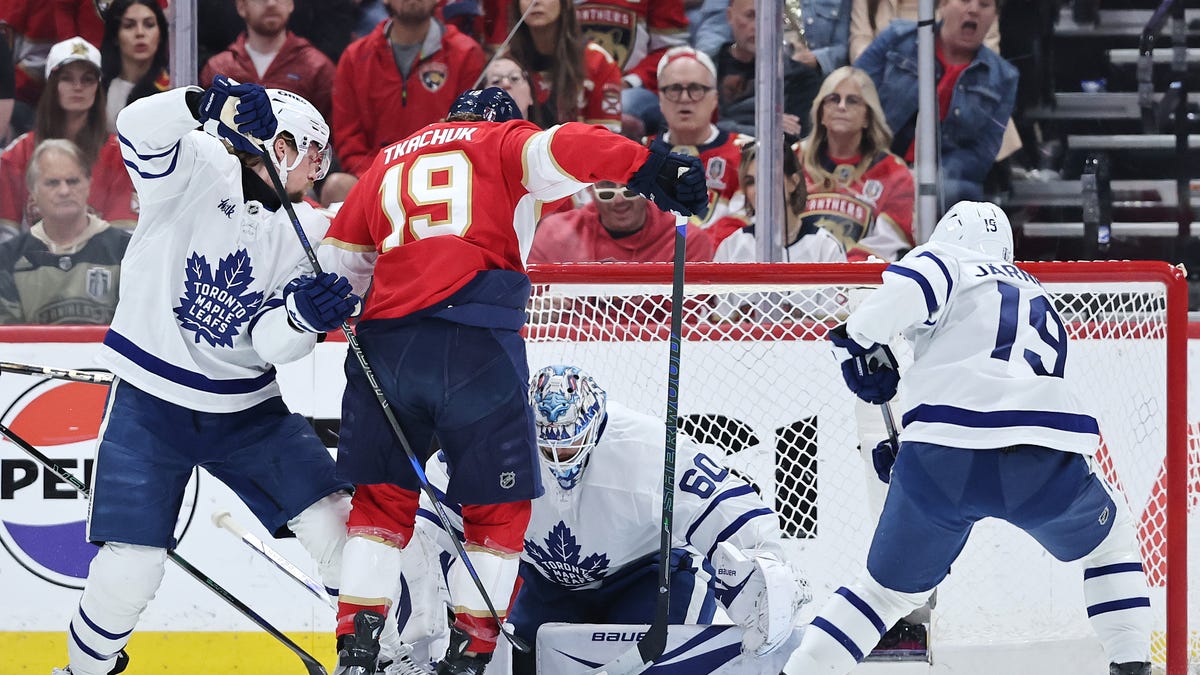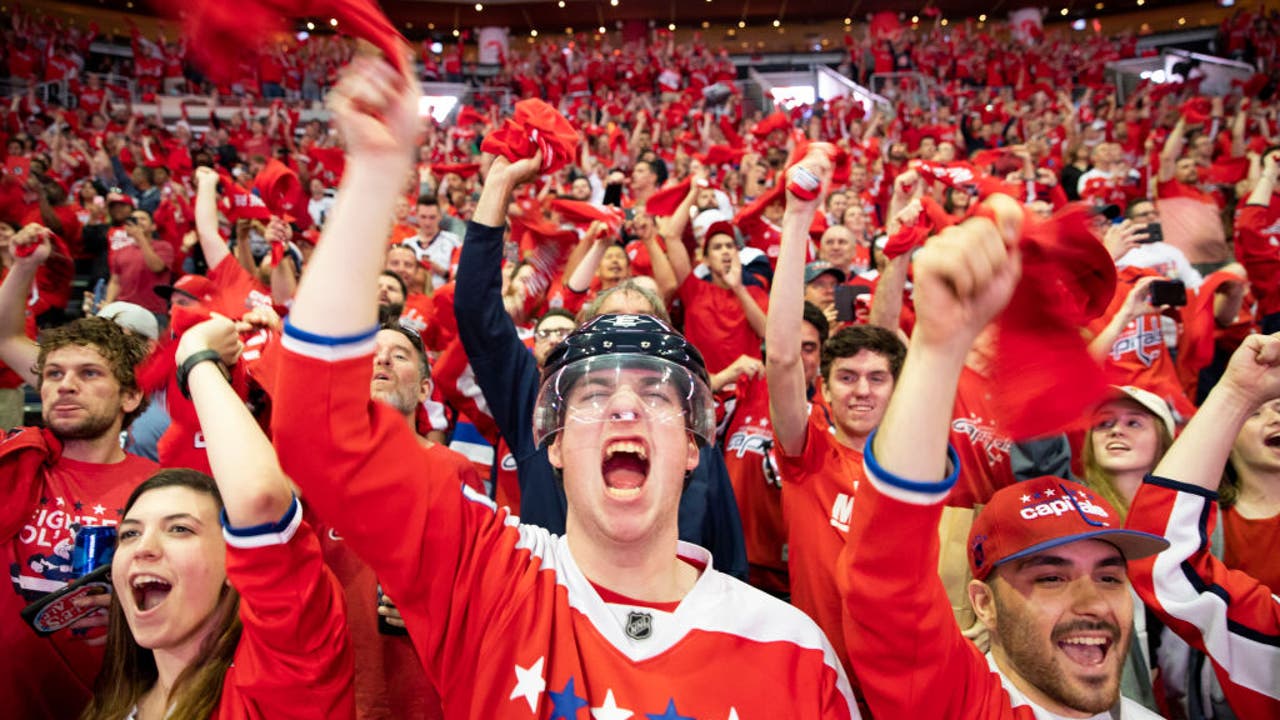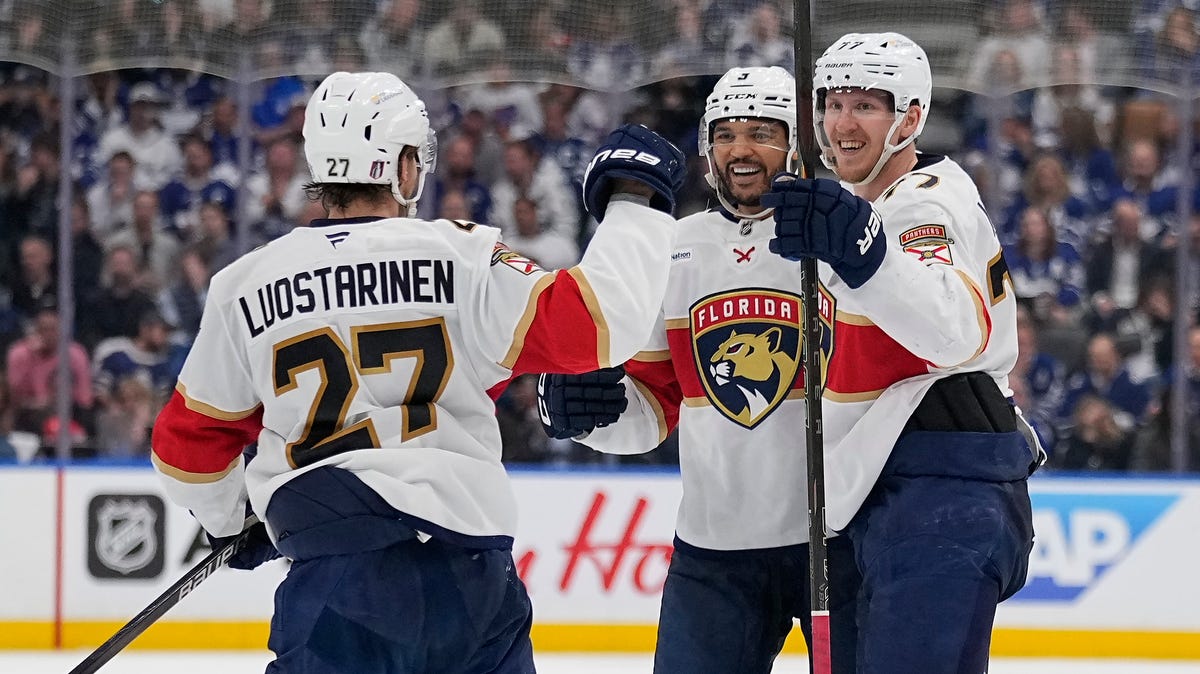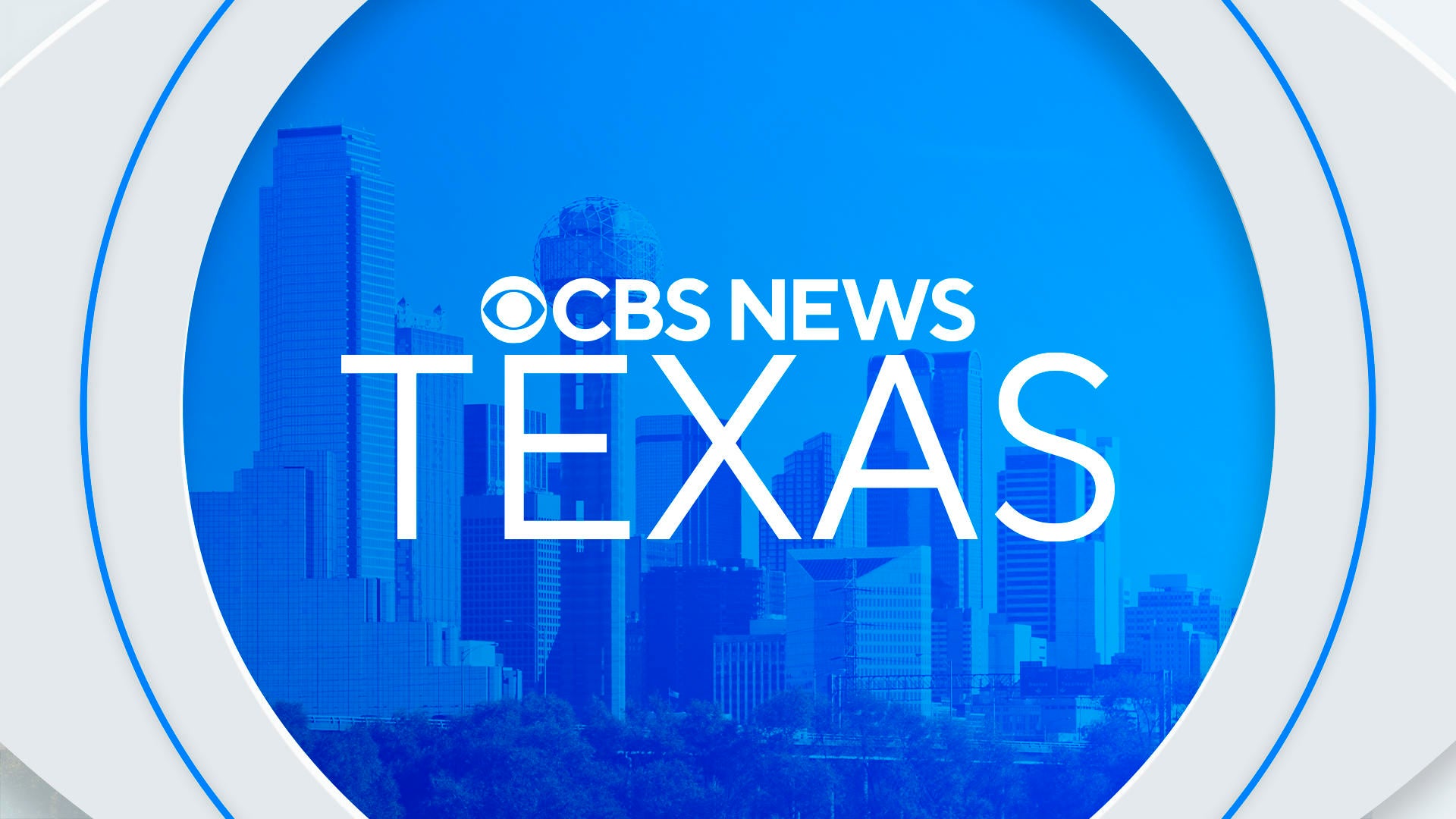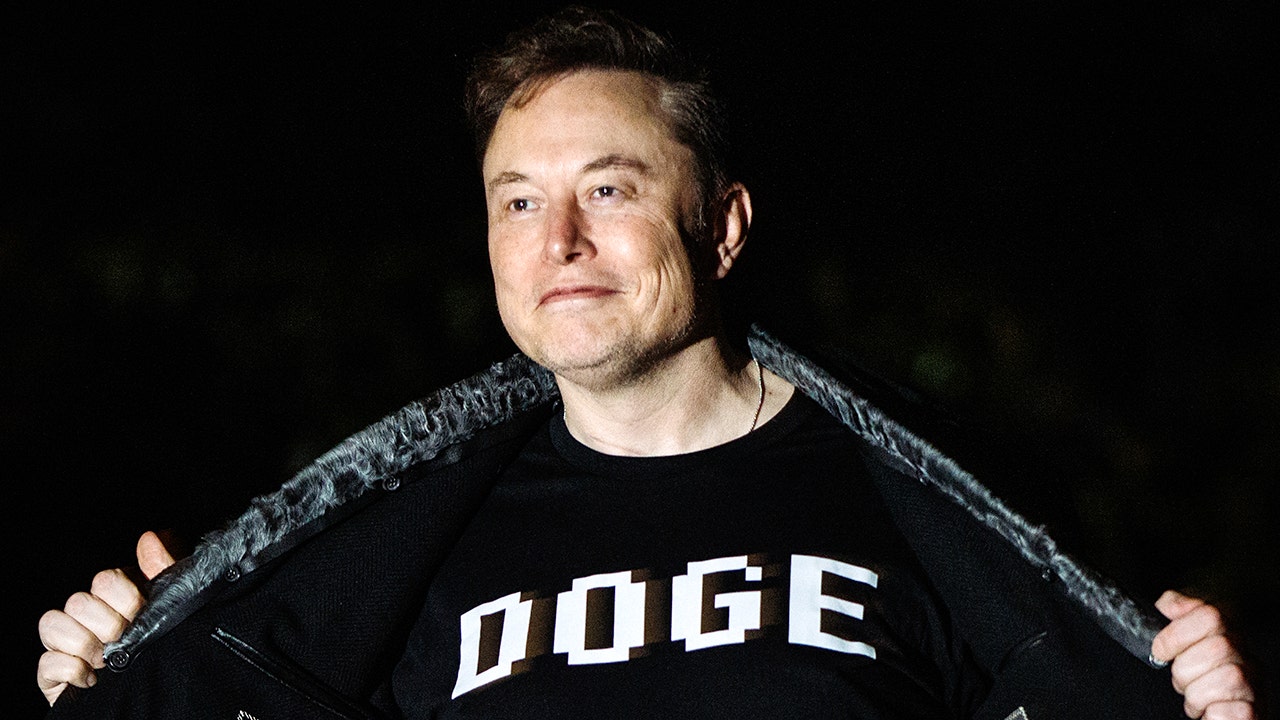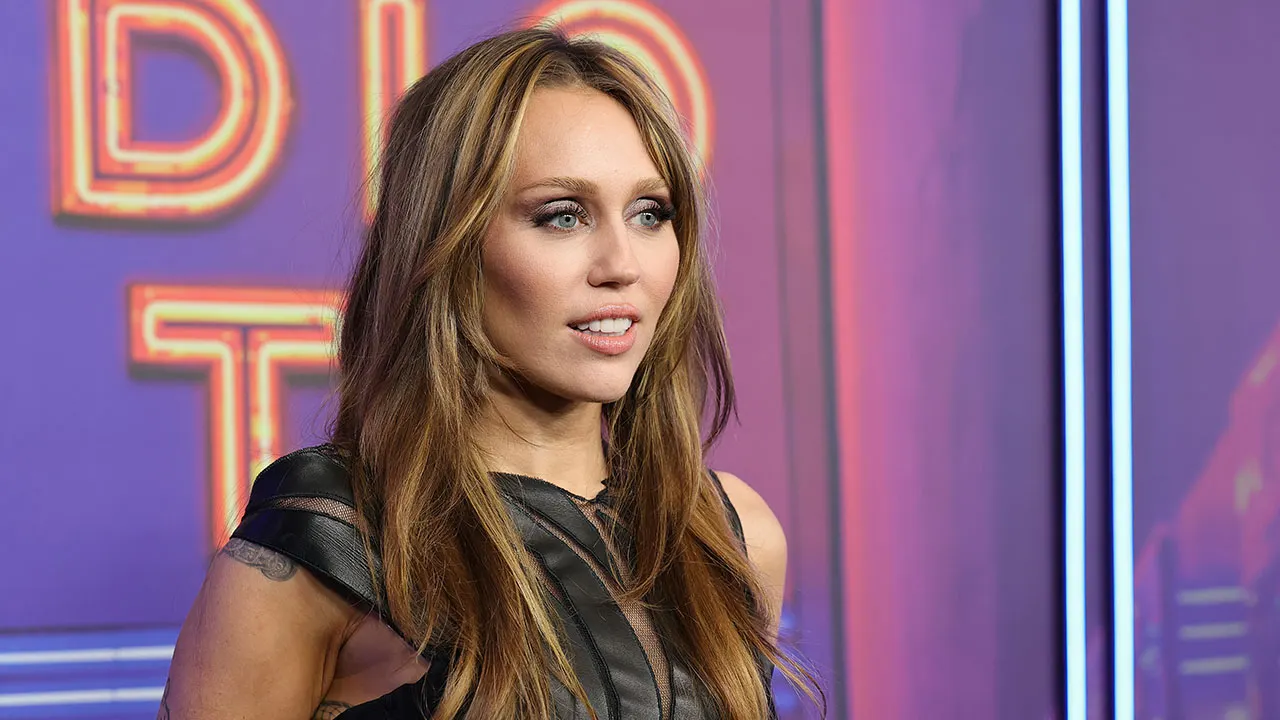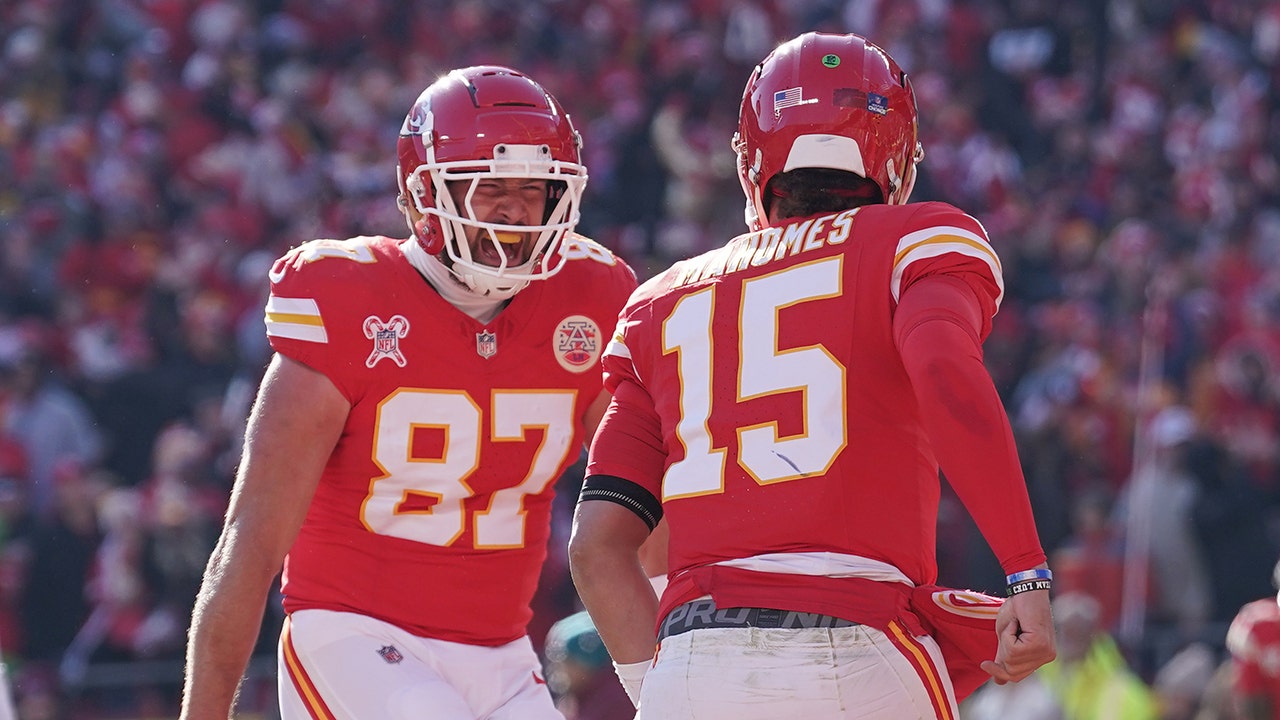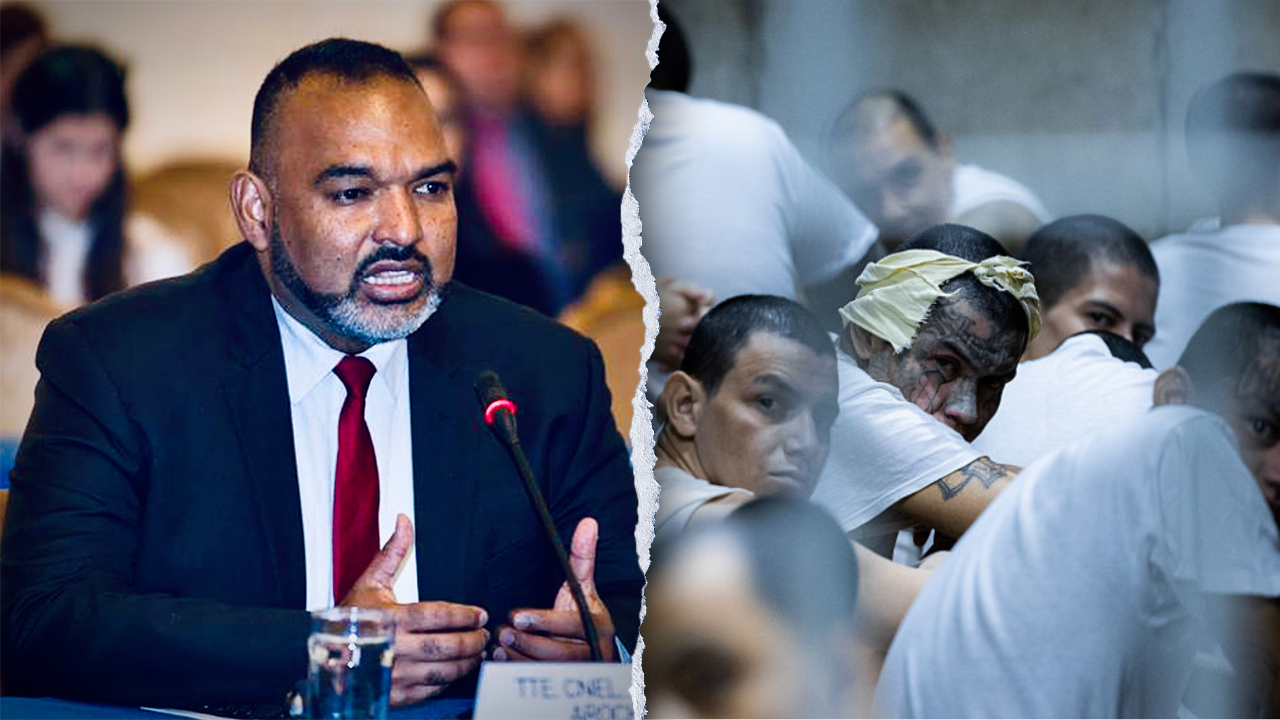Dallas, TX
Down Goes Brown: The case against the Hall of Fame candidacies of 15 NHL stars

It’s Hockey Hall of Fame week, with the mysterious committee holding its annual top-secret meeting on Wednesday, leading to the announcement of this year’s honorees. As always, the top candidates are a mix of slam dunks, borderline newbies, and holdovers from the past whose cases are strong but maybe not quite strong enough.
This is the time of year when I’d typically write a post laying out the strongest arguments in favor of a bunch of players. But there’s a problem with that approach — it just ends in disappointment. With a limited number of spots up for grabs each year, most candidates won’t make it. And that list will probably include some that you feel are deserving, especially if you’ve just seen guys like me pumping their tires to convince you they should be in.
So today, let’s flip the script. I’m going to give you a list of candidates, and then try to convince you that they shouldn’t make it. Yes, I’m switching sides, and arguing to keep stars out. That will be just fine for some of you Small Hall types, and infuriating for at least a few of you when it comes to your favorites. But the important thing is that I’ll be proven right on Wednesday, when the committee agrees with me on the vast majority of these players … and maybe even all of them.
But first, a few names you won’t see here:
• I’m not making a case against Henrik Lundqvist, because come on. I’m all for playing devil’s advocate, but there’s a line between that and just being contrarian for the sake of it. Lundqvist should be an easy induction, and there is no reasonable case to be made against him.
• Similarly, I’m not listing Alexander Mogilny, who I think is the most glaring omission among those who’ve been eligible for years. I’ve made the case for him several times, most notably during the NHL99 project.
He won one Stanley Cup and authored a prolific 76-goal campaign at age 23.
Yet his name is conspicuously missing from the hallowed ranks of the Hockey Hall of Fame.@DownGoesBrown has more on The Athletic’s #NHL99 No. 89, Alexander Mogilny⤵️
— The Athletic NHL (@TheAthleticNHL) October 24, 2022
• I’m not making the case against any of the (many) worthy women, because it’s ridiculous that the HHOF refuses to use both of the slots it has available to start clearing the backlog of candidates who should already be in.
• This is players only, no builders.
As an added bonus, once I’m done being a grumpy old man who doesn’t like anything, you can head to the comments and prove me wrong by making the case for your favorite stars. The comment section will be super-positive today, right? Cool, can’t wait, let’s do this.
The case against: Rod Brind’Amour
Brind’Amour’s candidacy has been fascinating. He first became eligible in 2013, and there seemed to be close to zero support for him among fans. (We have no idea whether that was also true for the committee, since they don’t tell us anything about who they discuss.) He was flying so far under the radar that I used to make a point of bringing him up in discussing other fringe candidacies, wondering why you never seemed to even hear his name.
Since then, something changed, to the point where Brind’Amour is now often one of the very first names that come up when the discussion turns to snubs. I suspect that his success as a coach is driving some of this; it doesn’t help his case according to the HHOF rules, but it does keep him in the public eye. Either way, these days people will point to a two-time Selke winner with nearly 1,200 points and wonder how he’s been left out for a decade. Here’s Sara Civian laying out the pro-Brind’Amour case a few years ago; here’s a Hurricanes fan blog doing the same.
So should he get in? No. Brind’Amour was a very good player with a very long career, most of it spent as the guy you wished your team had as its number-two center. That’s great, but second-liners aren’t supposed to get into the Hall of Fame (even though a few have). Those two Selkes are impressive, but they were the only two years he ever finished in the top 10, and his name showed up on Hart ballots just once in his 20-year career. He was good. He wasn’t one of the all-time greats. HHOF expert Paul Pidutti makes the case against Brind’Amour here, and I agree with just about all of it.
And no, I’m not interested in hearing about Guy Carbonneau. His induction was a mistake, a whiff by the committee that can’t really be defended. Is Brind’Amour’s case stronger? It might be, sure, but that’s true of a ton of guys, and sometimes you just have to call an outlier an outlier and move on.
In the end, the pro-Brind’Amour crowd ends up having to lean on some intangibles, like being a Cup-winning captain (but so were Derian Hatcher and Dustin Brown) or the most popular player in franchise history (but so were Rick Nash and Mikko Koivu) or a guy who redefined hockey’s approach to fitness (but so was Gary Roberts). That stuff should matter, but it’s just not enough. It’s OK to love a guy and what he means to a team while also accepting that he’s just not a Hall-of-Famer.
This is fun, right? Everyone is happy and enjoying this, let’s keep going.
The case against: Sergei Gonchar
I’ll be honest, over the years I’ve gone from a solid no on Gonchar to a teetering maybe, and at this point, I think you could get me to vote for him. Here’s why I was hesitant for so long: I have a hard time calling a defenseman a Hall-of-Famer when he not only never won a Norris, but was never even a finalist. That doesn’t scream “one of the very best” to me, which is why I spent more energy pushing the case of guys like Doug Wilson.
But we eventually got Wilson in — yes, that’s right, I’m taking credit on behalf of the team — so now we can start looking further. And despite the lack of awards night invitations, Gonchar’s case is stronger than I’d initially thought. (He had nine top-10 Norris seasons, for example.) I do think you could make the case that he was a classic compiler, playing for 20 years to rack up impressive counting numbers without ever having that one big year that put him on the map. Some would call that consistency, but it does hurt his case.
I think what it comes down to with Gonchar is that he was never in that “best blueliner in the game” conversation, not in a career that overlapped with guys like Nicklas Lidstrom, Zdeno Chara, Chris Pronger, Al MacInnis and Ray Bourque. But those were all slam-dunk HHOF picks, so maybe the bar is too high. Gonchar didn’t deserve to be a first-ballot guy, and he wasn’t. Is it time for him to sneak in now, after five years of eligibility? Maybe, but he’s a borderline call, and you can find the admittedly stingy case against it.
The case against: Henrik Zetterberg and Patrik Elias
Going against Gonchar is a tough case to make. I’m not sure that’s especially true for either of these two guys.
Let’s start with Zetterberg. Yes, he was a key part of a Cup winner, a very good two-way player, and a great story given his rise from seventh-round pick to Conn Smythe winner. But put aside that Conn Smythe, and what are we left with? He didn’t crack 1,000 points, or even get to 350 goals. He had one year as a second-team All-Star, but that’s it for the individual awards. He never won a Selke, and was a finalist only once. He never finished higher than 10th in Hart voting. His career in Sweden helps, as does his gold medal in 2006; it’s the Hockey Hall of Fame, not the NHL Hall of Fame, even though we all know which league matters most to the committee. If he’d arrived in the NHL before he was 22 then maybe the NHL resume looks better. But he didn’t, and here we are.
Elias did have longevity, lasting 20 seasons, but his numbers are only barely better than Zetterberg’s. At 408 goals and 1,025 points, he’s barely in the conversation. He’s another player who was good defensively but didn’t get much Selke love, and he only had one year with any serious Hart support (the same year he earned his only postseason All-Star honors). He does have two Cups rings, although his international resume peaks with an Olympic bronze.
Zetterberg and Elias were both very good players who spent their entire careers with (mostly) great teams. Neither was a Hall-of-Famer, and to be honest I’m kind of perplexed by how many fans outside of Detroit and New Jersey feel they’re Hall-worthy.
Patrik Elias and Henrik Zetterberg in 2008. (Jim McIsaac / Getty Images)
The case against: Theo Fleury
One of the most controversial ways to talk about a player’s HHOF case is the eye test: When this guy was at his peak, did he look like a Hall-of-Famer? Did you nudge your kid or your friend and tell them to keep an eye on that guy on the visiting team, because he might do something amazing?
You never did that for guys like Brind’Amour or Elias. But for a lot of years, Theo Fleury absolutely looked like a Hall-of-Famer. He was one of the defining players of his era, a tiny waterbug in a sea of manatees. He was so much fun to watch, in a way that would be tough to describe to today’s generation of fans. Forget about everything he had to overcome to make the NHL in the first place, I’d be tempted to vote for him just for this moment alone.
So why not put him in? The numbers just don’t get there. He played for 15 years, including having his prime in a high-scoring era, and only got to 450 goals and not even 1,100 points. He really only had three of four seasons of elite production, and the rest of the time he was good but not great. That’s not enough for the Hall
The other issue with Fleury is what he’s become these days. I’ve always felt that a player’s politics don’t change what they did on the ice, and they shouldn’t keep somebody from honors they’ve earned. But for what’s already a borderline case, does the committee really want to vote him in and then hold its breath for five months wondering how he’ll embarrass it before the November induction? Let’s just say I’m guessing it doesn’t help.
The case against: Mike Vernon, Chris Osgood, Tom Barrasso, Ryan Miller and Corey Crawford
I’ll use my stat one more time, since it’s becoming obsolete: If you started watching the NHL 50 years ago, you’ve seen the debut of just six goalies that the HHOF felt were worthy of induction: Grant Fuhr, Patrick Roy, Dominik Hasek, Martin Brodeur and Eddie Belfour, plus Robert Luongo last year. Henrik Lundqvist will almost certainly be added to the list this year, but it’s still not enough. Is it time to start backfilling the goalie wing?
Yes. Just not with these guys. They were all very good, and I think there’s a legitimate case for each, but none of them would get my vote. Osgood and Crawford were both winners who earned multiple Cup rings, but with zero Vezinas between them (and just one year as a finalist from Osgood), they were never considered the best at their position. Miller has a stronger case, and Barrasso combined the individual honors and the Cup wins in a way that makes him a better candidate than he gets credit for. And Vernon is a guy where I started as a firm no and find myself getting nudged into more positive territory by Eric Duhatschek and others. I’m just not quite there yet.
In the end, we need more goalies in the Hall. But with Luongo in, Lundqvist on the way, Marc-Andre Fleury soon to follow, and then names like Carey Price, Tuukka Rask and Pekka Rinne on top of that, now isn’t the time to over-correct by throwing the door open.
Except for maybe one guy…
The case against: Curtis Joseph
Joseph is another one of the overlooked goalies, but I’m separating him out because I think he’s the strongest case. In fact, he would have my vote, so I’m doing that disingenuous sportswriter thing where I argue a case I don’t really believe. (It’s not the only time I’m doing that in this post, by the way. See if you can spot the others!)
But there is a case against him, and it starts with his lack of a Vezina. There was a time when Joseph was absolutely in the conversation as the best goalie in the world — he finished second in the voting once, third twice, and had two other top-five years. But he never won, or was a first-team All-Star. Yes, he won 454 games, the most of anyone who isn’t in the Hall. But he never won a Cup, even on a stacked Red Wings team, and his Olympic gold medal came in a year where he lost the starter’s job during the tournament. He was a regular season winner, but maybe that’s not enough.

Curtis Joseph in 2003. (Dave Sandford / Getty Images / NHLI)
The case against: Steve Larmer
The case against Larmer is that there’s never really been a solid case for him. Yes, he had over 1,000 points, although only barely and after a 15-year career that overlapped with the highest-scoring era of all time. Yes, he had an impressive ironman streak — so did Andrew Cogliano. Yes his career was cut short by injuries, but he did play 15 seasons, so this isn’t a Cam Neely kind of case. Yes, he was good enough defensively to earn a few Selke votes here and there, including one year as a finalist, but he never won it, or anything else apart from the 1983 Calder.
Look, I’m very open to the idea that Larmer was an underrated player, and that if he’d played in today’s game and been viewed under a modern lens he’d be appreciated more, and maybe even considered a Mark Stone type of two-way difference-maker. That doesn’t mean we have to put him in the Hall-of-Fame.
And since Hawks fans are mad at me now…
The case against: Jeremy Roenick
Another guy whose behavior isn’t helping his own case these days, Roenick nevertheless passes the eye test with flying colors. Hell, this guy felt like one of the biggest stars in the league in the early 90s, back when we still had Gretzky and Mario and Messier, not to mention Steve Yzerman and Joe Sakic in their prime and a young Eric Lindros on the way. With all of that star power, Roenick still felt like he belonged right there with them.
It just didn’t last. By 1994, Roenick was absolutely on a HHOF track, with room to spare. But after he left Chicago, he went from being a superstar to just a guy. He had three straight 100-point seasons in Chicago, then never even got to 80 again. The dead puck era was a big part of that, and he still managed to get just past the 500-goal and 1,200-point plateaus, so there’s a case here. It’s just one that peaks too early.
Speaking of American stars…
The case against: Keith Tkachuk and John LeClair
Tkachuk’s 538 goals are the most of any eligible player not already in, at his best he was one of the most dominant power forwards in the game, and he’s back in the spotlight now with his kids running wild on the league. It’s starting to feel like Tkachuk will get in at some point, maybe even soon — his name is certainly top-of-mind after Matthew’s run to the final.
Like a lot of borderline candidates, the argument against starts with those pesky individual honors. Tkachuk was a two-time All-Star, and would have won the Rocket Richard in 1997 if it had existed. But he never made the first team despite playing left wing, the least crowded position in terms of elite talent. And he only got Hart votes in two seasons, never finishing higher than tenth. That sounds like a classic “very good but just not quite good enough” guy.
The flip side of the Tkachuk case is LeClair, who had a much better peak but couldn’t reach the same career numbers. He was a first-team All-Star at left wing twice — both the years that Tkachuk was second — and a second-teamer three other times. He had two top-seven Hart finishes and three straight 50-goal seasons. For a five-year stretch, he was the best left winger in the NHL, and that kind of peak is usually enough. But outside those years, he falls off dramatically, and his 406 goals and 819 points in a 16-year career just don’t feel like Hall numbers. They’re not even really all that close.
The peak vs. consistency argument shows up in every Hall of Fame debate, and through that lens, I’m not sure you can make a case that both LeClair and Tkachuk should be in. But I do think you could argue that neither quite gets there.
The case against: Pierre Turgeon
You know the drill by now: Turgeon is the highest-scoring player who’s eligible for the HHOF but isn’t in, and by a decent amount. Case closed, right?
Not really. The reality is that somebody has to be that guy. Put Turgeon in, and the next guy on the list is Roenick. Put him in too, and now we’re down to … Bernie Nicholls and Vince Damphousse. Yeah. Call me crazy, but I don’t think the non-HHOF scoring charts are as important as some seem to think.
The problem is that that’s by far the best argument for Turgeon. After that, you’re left with a guy who got Hart votes one time in a 19-year career, bounced around like crazy, and padded his admittedly impressive career numbers by sticking around and posting a bunch of 40-point seasons long after you remember him being in the league. Put it this way: In nearly two decades, he never finished in the top five in postseason All-Star voting. Not once. He’s a pass, and it’s easier than you think.

Pierre Turgeon in 1998. (Craig Melvin / Getty Images)
The case against: That other guy you’re mad about
If he didn’t even make this list, there’s no chance he’s getting in. Sorry you had to find out this way.
(Unless the committee pulls another Guy Carbonneau or a Kevin Lowe, in which case congratulations.)
(Top photo of Rod Brind’Amour: Lou Capozzola / Sports Illustrated via Getty Images)

Dallas, TX
Federal agents detain three outside Dallas immigration court in stepped-up enforcement
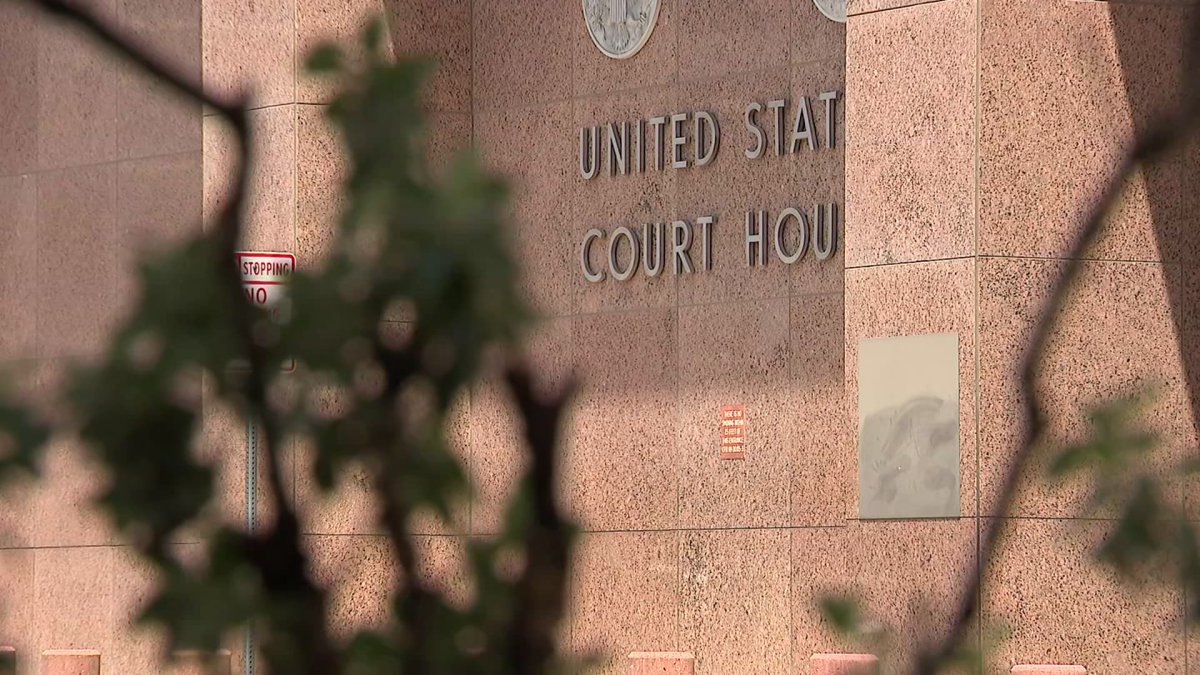
Plainclothes federal agents took at least three individuals into custody outside a Dallas immigration courtroom Friday.
It’s part of a stepped-up enforcement effort from the Department of Justice to remove undocumented individuals more quickly.
NBC-5 reporters witnessed one individual detained outside a courtroom in the Earle Cabell Federal Building in downtown Dallas, and two others told a Telemundo 39 reporter that their relatives were detained as well.
Another 15 individuals were seen taken into custody over a two-day period last week, according to our content partners at The Dallas Morning News.
Guadalupe Ontiveros says her nephew, Evin Villanueva Herrera, 18, arrived at the federal courthouse Friday for a hearing in his immigration case.
But instead of receiving a next court date, an attorney withthe Department of Homeland Security filed a motion to dismiss.
Ontiveros said she then watched plainclothes agents take her nephew, who arrived in the U.S. from Honduras, into custody moments after leaving the courtroom.
“I convinced him to come (to court) because it was the right thing to do, but the judge granted him an appeal, and as soon as we walked out the court doors, they took him,” Ontiveros said.
It’s a legal process called expedited removal, allowing the federal government to remove undocumented individuals who have arrived in the U.S. in the last two years and don’t have an active asylum claim.
The practice, once confined to a geographic radius near the border, now applies across the U.S., according to Eric Cedillo.
“They (DOJ) have the legal ability to do what they’re doing,” Cedillo said
The Dallas-based immigration attorney who did not have any connection to the cases at the federal building Friday, said while individuals have thirty days to appeal, they must do so in custody and by mail.
He added that the stepped-up enforcement, seen in several cities across the US, has led to growing concern for those who arrived in the U.S. within the last two years, even among individuals who filed legitimate asylum claims within a year of arrival.
“It is having that effect of instilling fear in those individuals who are asking those questions of what can I do to protect myself,” Cedillo said.
A request for comment from Immigration and Customs Enforcement was not immediately returned Friday.
Dallas, TX
Jim Schutze: A tree hugger’s lament for Dallas industry

Park advocates notched a victory before the Dallas City Council this week; an industrial developer took a hit; and I’m trying to figure out why I, a tree-hugger from way back, am not smiling.
The loser of the day was businessman and political consultant Brandon Johnson, on the short end of a narrow vote he needed to build a concrete batch plant in a heavily industrial zone near Walnut Hill Lane and Interstate 35E in northwest Dallas. The winners were advocates for nearby MoneyGram Soccer Park, 120 acres containing 19 soccer fields and a pavilion built with city money 10 years ago.
Not actually having gone to med school, I was nevertheless persuaded by testimony that it’s bad for kids to engage in vigorous athletic activity in a place where they are likely to suck in large amounts of what scientists call inhalable particulate matter — what I would call concrete dust.
So, the vote was no to particulates, yes to kids. So why no smile?
Start with this: The place the city chose for this park 10 years ago was already surrounded by heavy industry. In more recent overarching land-use policy decisions, the city has reaffirmed that this zone, about midway between downtown Dallas and the northwest city limits, is where industry is supposed to go. So putting a 120-acre athletic park smack in the middle of it 10 years ago was a monumentally foolish thing to do, equivalent to installing slides, swings and a merry-go-round in the median of a downtown freeway.
Some advocates for the park found sympathy from some council members this week when they accused the surrounding industrial users of environmental racism. They even suggested the solution must be to run off the industrial users, who possess long-range and even permanent legal permission to be where they are. This would be the equivalent of protecting the kids on the merry-go-round by tearing down the freeway.
In spite of my huggerdom, I always balk and even recoil when I hear a certain narrative stubbornly repeated around town in which industry is painted as a bad thing, an enemy of the people. I’ve lived here more than half of a very long life, but I’m a kid from the Great Lakes region at a time when it was the steaming, bustling industrial hub of the western world. Yeah, a while back.
I grew up among hardworking people who gathered in from around the world to work in those industries. With their good wages they bought new brick houses, sent kids to college and retired with great health care and, believe me, they did not do it by riding merry-go-rounds.
Environmental racism is real, there and here. This city has been witness to despicable cases of environmental racism, as in West Dallas, where noxious polluters were jammed in cheek-by-jowl with poor and mainly minority neighborhoods. Permanent damage was done to generations of children.
That’s a true and terrible story, a sin that cannot be plowed under with the lead-contaminated soil left behind by polluters like the infamous RSR lead smelter, closed in 1984 only after a heroic battle led by citizen activist Mattie Nash.
So how on this good earth could this city government, whose sole ultimate purpose is to protect us, have placed 19 soccer fields in the middle of a legally defined industrial area?
I assume MoneyGram paid good money for those naming rights, but if the park is to stay where it is, then another name would better suit the tradition it represents. In its present location, the park should be renamed RSR Smelter Park.
At the risk of being drummed out of hugger ranks forever, I can’t help pointing out another aspect of this vote: the powerful effect it will have on future location and investment decisions by industry. This is how factories wind up in Mexico.
We ought to be able to agree on this much. We never want kids to breathe in inhalable particulate matter if we can help it. But if we can resolve that problem, then industry is a good thing, not bad.
Industry provides employment, which is even more important than soccer. Employment puts food on the table. No food on the table, no soccer. And industry provides massive support to the tax base. Oh, that — the money to pay for $31 million soccer parks.
Hugger be damned, I just don’t believe the city council did the right thing this week. The right thing would have been for the city to admit its mistake 10 years ago and sell the park to industry, kind of like taking the merry-go-round out of the freeway. Put the money toward building a new soccer park somewhere safer. And name it Mattie Nash Soccer Park.
But did I actually say, “admit its mistake?” Yes, well. There you have it.
Jim Schutze is a longtime Dallas journalist and author of the recent novel “Pontiac.”
We welcome your thoughts in a letter to the editor. See the guidelines and submit your letter here. If you have problems with the form, you can submit via email at letters@dallasnews.com
Dallas, TX
Remains of Dallas infant found at Louisiana linen warehouse, police say

The remains of an infant from Dallas were found in Louisiana earlier this week, according to police.
The Shreveport Police Department said officers responded to a call around 5:30 a.m. Tuesday in reference to a body that was found at an Alsco Uniforms building.
Alsco employees told police they initially thought they found a doll wrapped in linens before they realized it was a small child.
According to police, the remains belonged to an infant who was stillborn in Dallas on May 3. The child’s funeral service was held at Golden Gate Funeral Home & Crematory in Dallas on May 17 and was scheduled for cremation.
Police said that the infant’s remains were mistakenly transported along with soiled linens to the Alsco Uniforms facility in Shreveport, about 190 miles east of Dallas.
“This is a deeply distressing situation,” said Shreveport Police Chief Wayne Smith. “Our thoughts are with the family of the child as this investigation unfolds.”
Police said no foul play is suspected and the investigation is ongoing.
The Texas Funeral Service Commission is also investigating.
-

 Education1 week ago
Education1 week agoVideo: Columbia University President Is Booed at Commencement Ceremony
-

 Technology1 week ago
Technology1 week agoAMD’s new RX 9060 XT looks set to challenge Nvidia’s RTX 5060
-

 Technology1 week ago
Technology1 week agoAre Character AI’s chatbots protected speech? One court isn’t sure
-

 News1 week ago
News1 week agoRead the Full ‘Make America Healthy Again’ Report
-

 Culture1 week ago
Culture1 week agoHow Manga Megastar Junji Ito Makes Terrifying Series Like ‘Uzumaki’
-

 News1 week ago
News1 week agoVideo: Trump Repeats False Claims to South African President
-

 Technology1 week ago
Technology1 week agoNow you can watch the Internet Archive preserve documents in real time
-

 Technology1 week ago
Technology1 week agoDiscord might use AI to help you catch up on conversations
